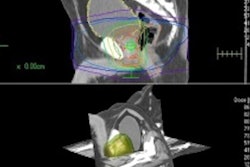Colon capsule developer Check-Cap has reported the results from a multicenter clinical study of its C-Scan ingestible capsule for colorectal cancer screening in an article published online on 18 May in the British Institute of Gastroenterology's journal Gut.
The study, which was used to support the firm's submission for a CE Mark, found that the capsule had a sensitivity of 44% for detecting polyps, compared with 37% for the fecal immunochemical test. The capsule's sensitivity increased to 78%, however, when more than 50% of the colon surface area was imaged. A linear correlation was observed between the imaged area and sensitivity, according to the company.
In addition, an updated scanning algorithm that was retrospectively applied to the study data resulted in 91% of the patients in the study having an imaged area that was greater than 50% of the colon, compared with 46% of the patients under the previous algorithm. Capsule specificity also approached 90%, Check-Cap said.
The researchers, led by Dr. Nadir Arber of the Tel-Aviv Sourasky Medical Center in Israel, reported no adverse events from the use of the capsules. The imaging process had an average radiation dose of 0.05 millisieverts and a transit time of 52 ± 32 hours, according to Check-Cap.
The firm is continuing to evaluate version 3 of the C-Scan system in its ongoing European Union postapproval study. Interim results are expected in the third quarter of 2018.



















